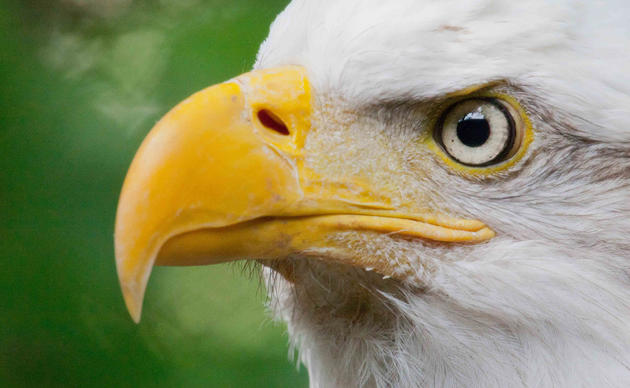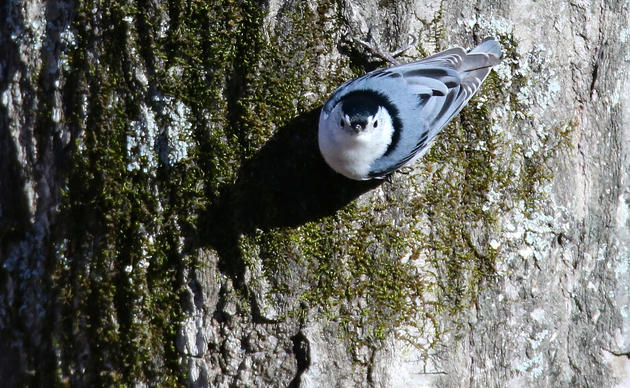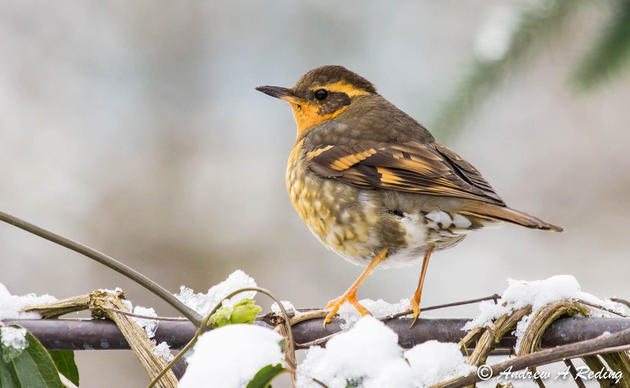Seattle, WA – December 1, 2017 – Audubon Washington expressed appreciation to Senator Maria Cantwell (D-WA) and Congressman David Reichert (R-WA-8) for leading efforts to prevent opening the Arctic National Wildlife Refuge to drilling while urging the entire Washington congressional delegation to stand up for the Arctic Refuge by opposing any language in the tax legislation being considered by Congress that would allow oil and gas development along its coastal plain.
Senator Cantwell has led the fight in the Senate to protect the Arctic Refuge, including offering an amendment to remove the drilling provision from the tax legislation. Congressman Reichert joined eleven Republican House colleagues in demanding drilling in the Arctic Refuge remains out of the tax bill.
In addition, Senators Patty Murray and Cantwell along with five Washington Members of Congress, including Reichert, Pramila Jayapal (D-WA-7), Derek Kilmer (D-WA-6), Suzan DelBene (D-WA-1) and Adam Smith (D-WA-9), have all co-sponsored legislation to permanently designate all of the Arctic Refuge as wildness and protect it from drilling.
“The Arctic Refuge is one of our last truly wild places and an iconic American landscape,” said Gail Gatton, executive director of Audubon Washington. “It has no place as a bargaining chip in the budget and tax reform process. We applaud Sen. Cantwell’s incredible leadership and dedicated efforts to oppose drilling in the Arctic Refuge and express our appreciation to Congressman Reichert for standing up for the Arctic Refuge. We also grateful to members of the delegation who want to permanently protect this special place.”
“Since it was first protected by President Dwight D. Eisenhower, defending the Arctic National Wildlife Refuge from oil and gas drilling has always been a bipartisan effort,” said David Yarnold, President and CEO of the National Audubon Society. “The Representatives who have signed on to this letter have taken an important stand at a critical time to defend the most prolific bird nursery. The birds and people we represent at Audubon thank you and will support you in your fight to ensure language opening the Refuge doesn’t become law.”
Impact Analysis – Audubon Research
Data and infographics produced by Audubon demonstrate how the revenue numbers promised don’t add up, and paint a picture of the impact drilling could have on the Arctic National Wildlife Refuge. Further, by making oil and gas drilling a primary purpose of the wildlife refuge and mandating an 800,000-acre oil and gas program, the current drilling language effectively undermines the environmental and wildlife protections that typically apply to oil and gas development on federal lands.
Earlier this month, 37 leading Arctic wildlife scientists united to oppose drilling in the Arctic Refuge—making clear that wildlife and oil drilling don’t mix in the Refuge.
Washington state is home to many species of birds that migrate from the Arctic Refuge, including the Varied Thrush, Sandhill Crane, Snow Goose, Dark-eyed Junco, Tundra Swan, Northern Pintail, and Pacific Black Brant. More than 200 species of birds depend on the Arctic Refuge, and many migrate through six continents and all 50 states.
The Arctic Refuge is an American treasure on par with the Grand Tetons, Yellowstone and Yosemite. Leaders from both parties have worked together for generations to stop attempts to open the biological heart of the Refuge—its pristine coastal plain—to oil and gas drilling. (Maps available for download here, here and here.)
Audubon Washington urges its members and supporters to contact their members of Congress today to oppose drilling in the Arctic National Wildlife Refuge.
About Audubon Washington
Established in 1981, Audubon Washington works statewide with its 25 independent chapters and 24,000 members on the conservation of the sagebrush shrub steppe ecosystem in Eastern Washington, protection of coastal estuaries, and actions that address climate change, the number one threat to birds today. Through the Seward Park Audubon Center, we provide science, nature and environmental education programs for youth and families. Learn more at http://wa.audubon.org/.
Media Contact
Samara Villasenor
425-255-0890
samara@greatworkcommunications.com



